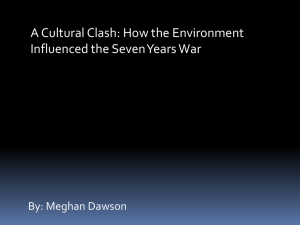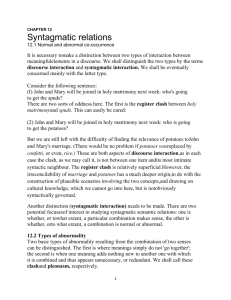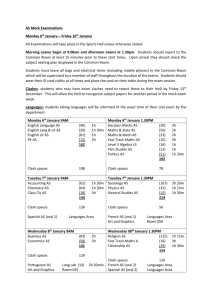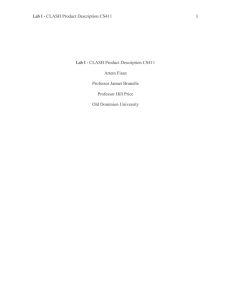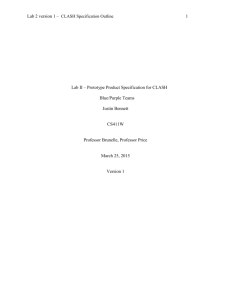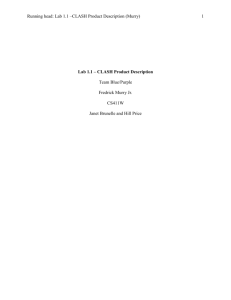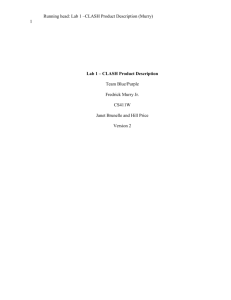PP on Clash - Alberta Debate
advertisement
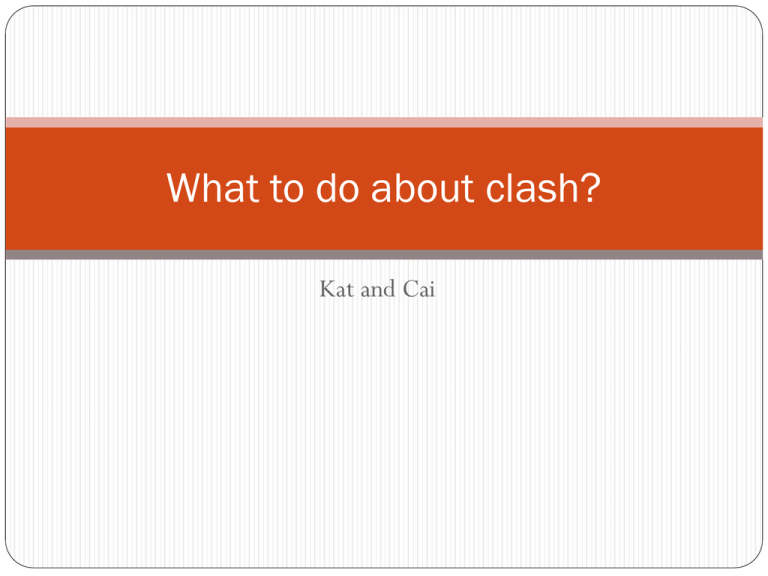
What to do about clash? Kat and Cai What is clash? Clash is vital to debate. Why? Interact with the other team Simply put, clash is pointing out the differences between your arguments and your opposition’s arguments Basically it is your offensive tactic Better to stumble a bit on your clash, then have no clash at all What to clash? You trying to convince to your judge’s that you’re right and you have to prove why your opponents are wrong Clash with every MAJOR notion, assertion (statement without reason), argument, example and statistic or anything else that will bring the other team down Don’t judge your opponents, it’s not your role to inform the judges that they went over their time or that they were stuttering You’re pointing out flaws with their case Clashing with Themes Easy way – target the main idea in their opposition’s case Don’t make the mistake of clashing with one sentence of your opposition’s case that they have called their theme More experienced, identify and attack the ideas that are the pillars of their case and refer their to your opposition’s theme while doing this Clashing with Themes cont. Simple Approach “The main problem with our opposition’s case is their theme, which states [X]. This theme is wrong because....” Difficult Approach “The main problem with our opposition’s case is their assumption that [Y]. This assumption is vital to the oppositions’ case. For example their theme stated [X]. Now, the assumption is not true...” Clashing Examples and Statistics Examples and statistics by themselves prove nothing. You do need to constantly consider and discuss their relevance and context in the debate round. In simple terms, it can be effective to clash with an example or statistic, if you show how your opposition’s case was reliant on that material. Be careful about trying to take a machine gun to all their examples and making the debate ‘argument by example’ where the debate becomes all about examples and statistics instead of principles and arguments. “If our opposition has managed to attack one of our arguments, should we let this act stand?” just kidding, no. Clashing with Clash You should always answer the opposition’s attack. Defence of your case is important BUT, the goal of your clash is to ultimately attack your opponent’s case It’s important to spend time to clash with some of their clash, but don’t waste too much time getting defensive Be careful and don’t clash with the fact that they clash but defend your own constructive arguments. Conclusions Premise Paradigm Conclusions: A and B are true, but do not lead to C Premises : A and/or B are false Paradigm: Even if A and B led to C, NONE OF THESE ARE GOOD.
